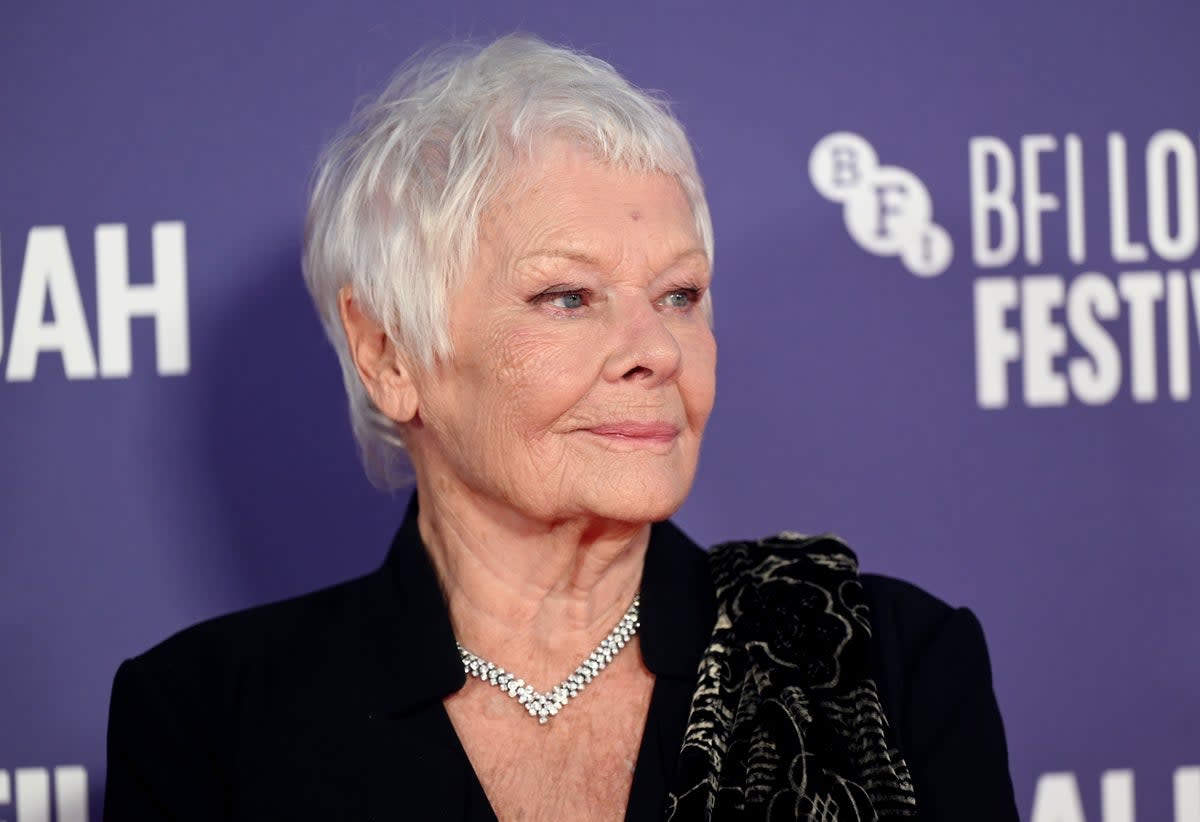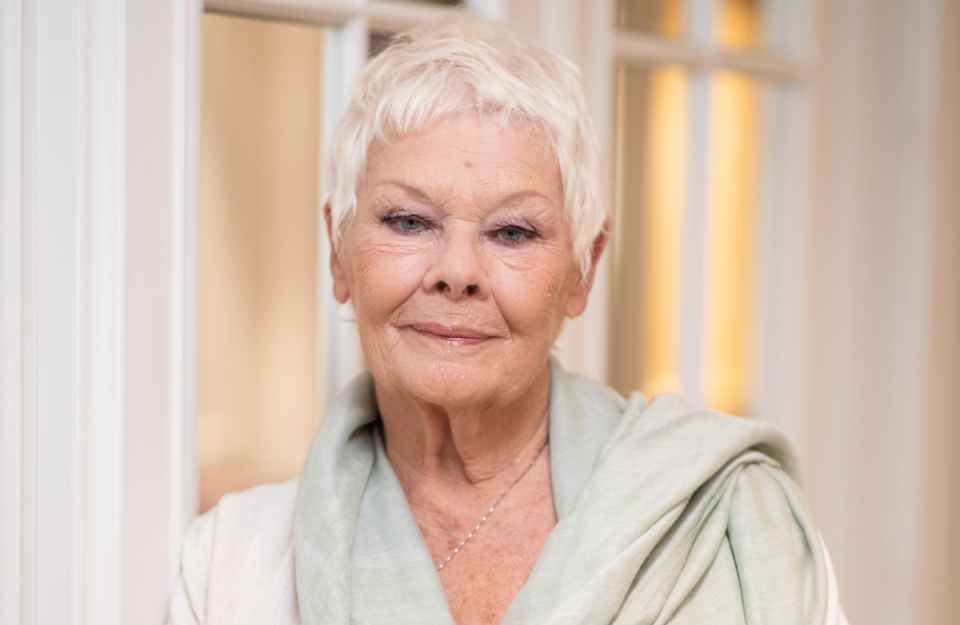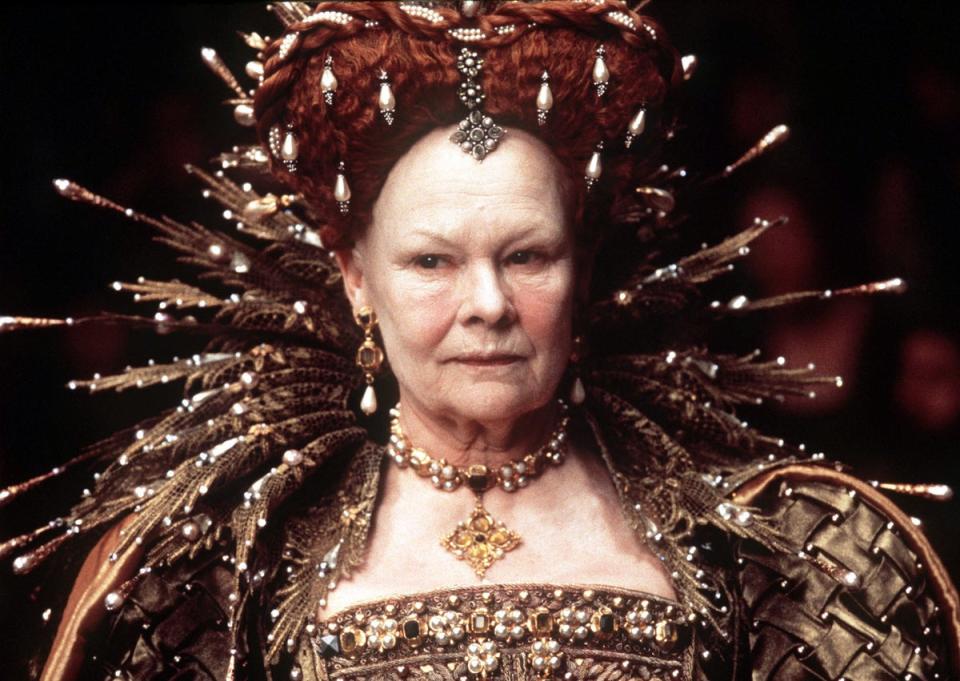Judi Dench condemns rise of trigger warnings in theatre

- Oops!Something went wrong.Please try again later.
Dame Judi Dench has voiced her disapproval of trigger warnings used in theatre, stating that audiences who can’t handle sensitive content should stay at home.
In some cases, trigger warnings are issued before the beginning of a performance to alert audiences to upsetting or distressing content.
The Shakespeare in Love actor, 89, said that people should be surprised by the plot of a play and questioned the “content guidance” that has been placed on performances at Shakespeare’s Globe in London.
Speaking to Radio Times, Dame Judi said audiences should be given the opportunity to interpret material for themselves.
The Oscar-winner was horrified to learn trigger warnings had been placed on a performance of Antony and Cleopatra earlier this year for “depictions of suicide, scenes of violence and war, and misogynoir references”.
“Do they do that? My God, it must be a pretty long trigger warning before King Lear or Titus Andronicus,” she said.

“I can see why they exist, but if you’re that sensitive, don’t go to the theatre, because you could be very shocked.”
“Where is the surprise of seeing and understanding it in your own way?”
Last year, the Globe added an ableism trigger warning to A Midsummer Night’s Dream after casting an actor with dwarfism, Francesca Mills. Producers explained that theatregoers may be distressed by Helena’s famous line: “Though she be but little, she is fierce.”
In 2021, the theatre also placed a warning on Romeo and Juliet for “depictions of suicide”, “moments of violence”, and “drug use”.
In March, This Life star Jack Davenport questioned what “William Shakespeare [would] make of a trigger warning”.
“The purpose of art is to teach us about ourselves,” he told The Independent. “Human beings are capable of extraordinary feats of creativity and unbelievable cruelty.

“And it strikes me that it’s a much safer way, ironically, of experiencing psychopathy, or cruelty, if someone’s just pretending it in front of you.”
In February, Ralph Fiennes similarily called for trigger warnings in theatre to be scrapped because people should be “shocked and disturbed” by what they see.
Fiennes said: “We didn’t used to have trigger warnings. There are very disturbing scenes inMacbeth, terrible murders and things. But I think the impact of theatre is that you should be shocked and you should be disturbed.”
He continued: “Shakespeare’s plays are full of murderers, full of horror. As a young student and lover of the theatre, I never experienced trigger warnings telling me: ‘By the way in King Lear, Gloucester is going to have his eyes pulled out...’ Theatre has to be alive and connect in the present.
“It’s the shock, the unexpected, that’s what makes an actor [in] theatre so exciting.”

